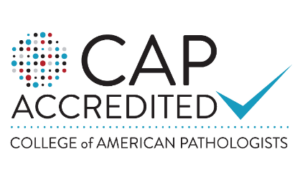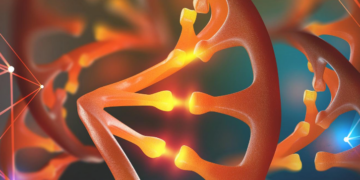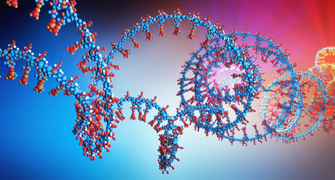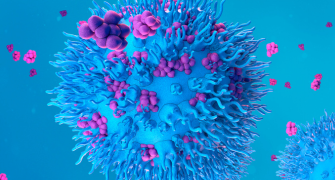Genomic Services for Oncology
NGS Oncology Panel
The oncology platform offered at Frontage used next-generation sequencing (NGS) technology combined with hybridization capture for the targeted sequencing of gene involved in a variety of cancer types.
This approach allows for the detection of hereditary variants and somatic mutations with accurate quantification of allele fraction, including low-frequency variants from tumor samples or liquid biopsies.
Scientists at Frontage have designed a comprehensive NGS oncology panel that targets the coding regions of 293 cancer-related genes, including the most well-characterized and clinically relevant cancer genes. The Frontage oncology panel includes expert-defined content to identify variants with established relevance to cancer genetics.

Frontage offers NGS-based variant detection from a variety of sample types including cells, FFPE tissue, frozen tumor tissue, and biofluids. In addition to genomic DNA analysis, Frontage offers extraction and analysis of cell-free circulating tumor DNA (ctDNA).

The Frontage Oncology Platform calls variants and determines allele frequencies with accuracy and reproducibility. The graph shows the expected allele fractions for verified variants from oncology genomic DNA reference standards compared to the observed allele fractions reported with the oncology Frontage Oncology Platform.
Detection of Low-Frequency Polymorphisms
| Gene | Protein Variant | Expected AF | Observed AF | Required Depth |
|---|---|---|---|---|
| AKT1 | E17K | 5.0% | 3.9% | 460 |
| BRAF | V600K | 3.8% | 2.6% | 485 |
| BRCA2 | K1691Nfs*15 | 5.6% | 4.5% | 320 |
| EGFR | G719S | 5.3% | 5.6% | 492 |
| EGFR | L858R | 3.0% | 2.2% | 747 |
| EGFR | T790M | 4.2% | 4.6% | 377 |
| FBXW7 | S668Vfs*39 | 5.6% | 6.2% | 431 |
| FLT3 | P986Afs*27 | 5.6% | 3.9% | 340 |
| FLT3 | I836 | 5.0% | 4.5% | 376 |
| GNA11 | Q209L | 5.6% | 3.7% | 553 |
| ∆IDH11 | R132C | 5.0% | 5.2% | 410 |
| JAK2 | V617F | 5.0% | 3.2% | 338 |
| KRAS | G12A | 5.0% | 3.9% | 335 |
The Frontage Oncology Platform is able to detect somatic variants with an allele frequency (AF) as low as 3% with great accuracy and reproducibility. The platform was validated using commercially available genomic DNA reference standards harboring known variants in oncology-related genes. The table shows the allele frequency reported by the supplier (Expected AF), the allele frequency detected by the Frontage Oncology Platform (Observed AF), and the sequencing read coverage depth that was found to be necessary to reliably detect that variant (Required Depth).
Streamlined, Customizable Variant Reports
The end-to-end oncology services offered at Frontage include variant annotation and classification, as well as report generation for each sample. Combining Frontage’s NGS-based oncology platform with QIAGEN Clinical Insight Software enables access to the most comprehensive and current databases, following expert guidelines for interpreting variant information, such as the ACMG variant classification, for variant annotation, classification, and report generation. The clinical report includes a list of pathogenic/ likely pathogenic variants detected in the sample, critical gene and variant information, sample interpretation based on detected variants, and a list of relevant references. Reports are customizable to include only genes and variant types of interest.
Genomic Services with a Quick Turn-around Time
At Frontage, we pride ourselves on the ability to offer quick turn-around times for our genomics services. Our workflows are optimized for high-throughput sample processing to accommodate a large number of samples in a short amount of time.
Validated for Clinical Use
Frontage’s oncology platform was validated for clinical use under CLIA/CAP. The platform has been validated for detecting bot hereditary variants and somatic variants from genomic DNA with 100% specificity, selectivity, accuracy, and reproducibility. Frontage also offers a validated platform for somatic variant detection from ctDNA. The Frontage NGS Oncology Panel is ideal for biomarker discovery and patient stratification to support clinical trials and research. Frontage is a CAP-accredited laboratory.

Advantages of Frontage’s NGS Oncology Platform:
- Quick turn-around time
- High throughput workflow
- Genotyping of 293 cancer-related genes
- Identification of germline variants and somatic mutations
- Accurate detection of low-frequency alleles
- Variant annotation, classification, and reporting
- Customizable genetic reports
- Validated for clinical use under CLIA/CAP
Providing insight into cancer through DNA sequence analysis
Resources To Consider


Genomics: A Customized NGS Sequencing

Sequencing Assays for Biomarker Discovery and Pharmacodynamics in…

Oncology Services




